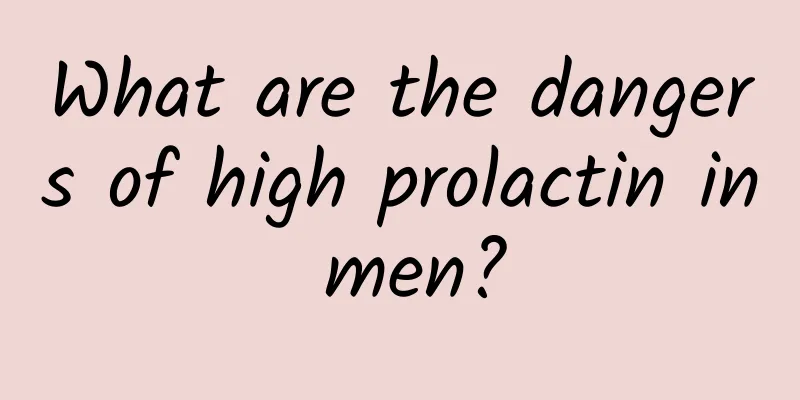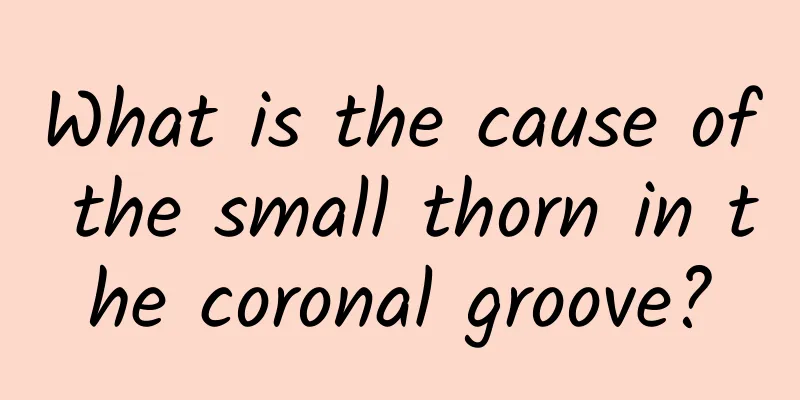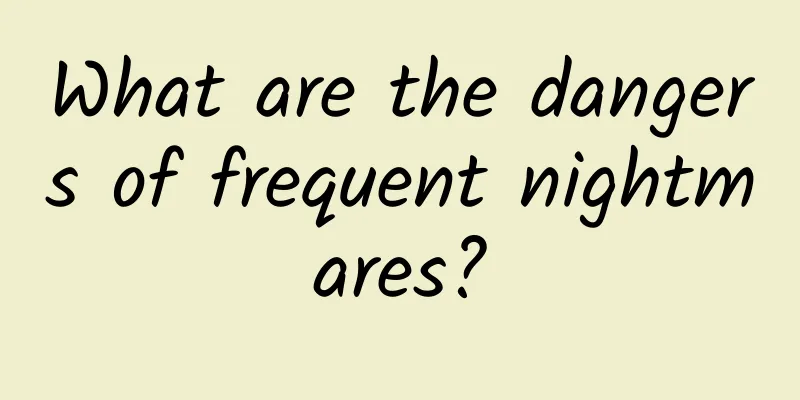Nine signs of a man's physical condition

|
Most men love cars. They take good care of their cars, but they are careless about their bodies. The average life expectancy of men is six years shorter than that of women, because the probability of death from cardiovascular disease and cancer is more than four times that of women. A big reason for this is that they often ignore the "overhaul" signals sent by their bodies. Question 1: Is it difficult to breathe in cold weather? Answer "No" to pass; answer "Yes" to be warned. Shortness of breath means that the heart is forced to increase its workload. If you feel your heart is under pressure at the same time, you should pay attention. Ryan Simpson, a cardiologist at the British Cardiovascular Society, emphasized that if you feel shortness of breath and chest pain and tightness in cold weather, after eating or when you are physically exhausted, it may be a warning of arterial narrowing. What to do: An electrocardiogram (ECG) may be done to monitor heart activity, and a stress test may also be done. TIPS: An experiment conducted by researchers at the Forest University School of Medicine in the United States showed that mice that ate more cauliflower, carrots, green beans, peas and corn every day had a much lower rate of narrowing of their arteries than mice that did not eat them. It turns out that these vegetables have the effect of curbing arteriosclerosis. Arteriosclerosis makes the arteries hard and narrow, which may lead to heart disease and stroke. Studies have found that people who eat more vegetables have a lower incidence of heart disease. Chronic inflammation of blood vessels is believed to be the cause of arteriosclerosis. Studies have shown that plant compounds called polyphenols have both anti-inflammatory and antioxidant effects. In addition, vegetables are rich in vitamins that act as antioxidants, which means they have the effect of neutralizing free radicals that damage cells. The study focused on cauliflower, carrots, green beans, peas, and corn, in part because these are the most commonly eaten vegetables in the U.S. It is likely that other vegetables have similar anti-arteriosclerotic effects, but more research is needed. Question 2: Do you often wake up at night? Answer "No" to pass; answer "Yes" to be warned. Irregular nighttime waking may be caused by: first, aging makes muscles weaker; second, drinking a lot of coffee, caffeinated beverages, alcohol or sleep disorders. If you have an urgent need to urinate, but the amount of urine is very small, and there is blood in the urine or semen, this may be a urinary tract infection, prostatitis, or even cancer. What to do: Frequent urination is not a sign of prostate cancer, but a physical examination can help you understand your risk of the disease. In addition, checking the rectal condition and prostate-specific antigen level will help diagnose whether you actually have cancer. TIPS: Three good rules for protecting the prostate First good thing: Eat well Eat more: Men should have more seafood, lean meat, legumes, melon seeds, peanuts, pumpkin seeds and sesame seeds on their tables to meet the body's need for zinc; more whole grains, nuts, vegetable oils, fresh vegetables and fruits to supplement various antioxidants. Eat less: Although alcohol, chili peppers and other foods and smoking will not directly cause prostate diseases, they can irritate the prostate and urethra, causing temporary discomfort in the perineum, and can also cause congestion and edema of the prostate and bladder neck, resulting in difficulty in urination. Therefore, try to avoid contact with them as much as possible. Second best: Drink well Drink plenty of water, especially during the day. To avoid getting up frequently at night, drink less water 2-3 hours before bedtime. A special reminder: the more you drink, the more you urinate. However, the attitude of "holding it for a while" when you have to urinate urgently is not advisable. Holding urine will overfill the bladder and compress the prostate. For patients with prostate diseases, this can easily cause urine reflux, bring harm to the kidneys and ureters, and even cause renal failure. It may also cause dysuria and acute urinary retention. So remember to urinate immediately when you feel the urge to urinate. Third best: Have fun The position of the prostate determines that men "sit" on the prostate, so men who sit for a long time will have a heavier burden on the prostate. So it is best not to sit for a long time. You should move around regularly, such as walking, boxing, etc. In addition, maintaining a warm local environment can make the prostate drainage smooth and relieve congestion and edema; on the contrary, being cold can easily aggravate prostate symptoms. Question 3: Is there any embarrassing itching? Answer "No" to pass; answer "Yes" to be warned. High levels of glucose in the blood can easily lead to fungal infections, which can cause vulvar itching. If symptoms persist and are accompanied by thirst, blurred vision, extreme fatigue, and frequent urination (especially at night), then this is likely type 2 diabetes. Other factors to consider include family history, age, and waist circumference. Men with a waist circumference of more than 94 cm will also have an increased risk of the disease. Response: It is recommended to have a blood test or change bad lifestyle habits. TIPS: Learn 12 tips to avoid diabetes for life 1. Drink two spoons of vinegar before eating meat. It can greatly reduce blood sugar levels. If you are not used to drinking vinegar, it is best to eat some salad with vinegar before meals. 2. Lose 5% of your body weight. Just a 5% reduction in body weight can reduce your risk of diabetes by 70%. 3. Walk for 35 minutes a day. Walking 4 hours a week, 35 minutes a day, can reduce the risk of diabetes by 80%. 4. Drink more coffee. Drinking 6 cups of coffee a day can reduce the risk of diabetes by 29%-54%; drinking 4-5 cups a day can reduce the risk by about 29%. 5. Look for high-fiber labels when buying food. High-fiber foods can reduce the risk of breast cancer, diabetes, high blood pressure and stroke. 6. Do not eat fast food more than twice a week. Eating fast food more than twice a week will halve the sensitivity of your organs to insulin. 7. Eat less ham and sausage. Eating ham or sausage more than 5 times a week will increase the risk of diabetes by 43%. 8. Cinnamon helps lower blood sugar. Cinnamon powder can be sprinkled in coffee or mixed with honey and water. 9. Take three deep breaths before doing anything. Long-term stress can cause blood sugar to rise. Deep breathing can reduce stress. 10. Sleep between 6 and 8 hours. Sleeping less than 6 hours doubles the risk of diabetes; sleeping more than 8 hours triples the risk. 11. Don't live alone. People who live alone have a 2.5 times higher risk of diabetes than others. 12. Pay more attention to blood sugar after the age of 45. People who are obese, have a family history of diabetes, and have high cholesterol and high blood pressure should also be careful. Question 4: Do you sweat a lot often? Answer "No" to pass; answer "Yes" to be warned. Symptoms such as excessive sweating (especially at night), loss of libido, irritability, depression and poor morning performance may be related to a drop in testosterone levels in men. Many men admit that these symptoms begin to appear around the age of 50. Another possible cause is a decrease in male gonadal function, which leads to a drop in testosterone levels. What to do: Testosterone-directed therapy can not only improve erectile dysfunction, but it can also help lower cholesterol levels. TIPS: Lack of sleep will reduce testosterone levels Testosterone is a steroid hormone that plays an important role in libido, energy, muscle mass, bone density and immune function. Adult males secrete 20 to 30 times more of this hormone than adult females. Scientists have learned some things about the relationship between sleep quality, aging, and sex hormones. For example, starting in their twenties or thirties, men's testosterone levels drop by 1% to 2% each year; a drop in androgen levels can adversely affect bone density and metabolism; and sleep deprivation in young men can also cause sex hormone levels to drop. "A lot of sleep deprivation is self-inflicted," Epstein said. "People would rather stay up late watching TV, surfing the Internet, doing other things, rather than getting enough sleep." Question 5: Do you often have intestinal bloating? Answer "No" to pass; answer "Yes" to warn. Unbearable intestinal bloating, changes in bowel habits (from once a day to three or four times a day), anal pain with mucus or blood in the stool may all be related to bowel cancer, explained Mark, an oncologist at the Christie Hospital in Manchester, England. Changes in bowel habits are because the tumor interferes with the normal digestive process. In addition, the tumor can cause ulcers or polyps, which in turn cause bleeding. Response: Men under 50 are more likely to have colitis. Men over 50 who have these symptoms should be screened for colon cancer promptly. TIPS: Tips to prevent colorectal cancer Developing a habit of regular bowel movements is an effective measure to maintain intestinal health and prevent colorectal cancer, but you must be careful not to take laxatives for a long time as a fixed way to detoxify. If you have long-term constipation and really need to take laxatives regularly, you must also change the type of medicine regularly. The most effective and scientific way to detoxify is to start with your lifestyle and develop the habit of "three mores", that is, more exercise, more water, and more crude fiber foods. Try to ensure 2 to 3 aerobic exercises such as jogging, brisk walking, swimming, etc. (45 minutes each time) per week; Make sure to drink 8 glasses of water every day, because fiber needs to work together with water in the intestines; You should eat more fiber-rich foods such as sweet potatoes, corn, and fresh vegetables. In addition, increasing the beneficial bacteria in the intestines is also a good way to increase bowel movements, such as drinking yogurt regularly. Oligosaccharide foods can promote the growth of beneficial bacteria in the intestines, so these foods are called "colon foods". Foods that contain more oligosaccharides include soybeans and their products, garlic, onions, asparagus, and grains. Question 6: Have you lost any sensory function? Answer "No" to pass; answer "Yes" to be warned. The loss of any sense (sight, hearing, touch, etc.) means that some substance is interfering with the corresponding part of the brain. If the loss of a sense is accompanied by frequent irritability and loss of control for no reason and lingering headaches, this may be a benign disease, cerebral hemorrhage or brain tumor. Response: A comprehensive diagnosis is made based on various symptoms. Persistent headaches may also be caused by eye diseases or high blood pressure. TIPS: Early symptoms of brain tumor When people have headaches, vomiting, and persistent attacks and paroxysmal exacerbations, they should consider whether there is a possibility of increased intracranial pressure and should seek medical attention immediately. Some patients go to the doctor because of vision changes, and examinations reveal edema of the optic disc, which should also be considered as a possibility of increased intracranial pressure. In addition, due to the different locations of tumor growth, some focal symptoms may occur. For example, tumors in the frontal lobe can cause obstacles in voluntary movement, language expression, and mental activities. One side of the limbs is often inflexible, and many patients may also have epilepsy. Lesions in the parietal lobe can cause unilateral limb sensory disorders. Lesions in the occipital lobe can cause visual disorders, such as hallucinations and visual field loss. Pituitary tumors often cause endocrine disorders due to the special functions of the pituitary gland. Female patients often experience menstrual disorders, amenorrhea, and galactorrhea, while male patients experience sexual dysfunction and hair loss. Many patients with pituitary tumors also experience vision loss. Brainstem tumors can cause eye movement and facial sensory disorders, and may also cause hoarseness and difficulty swallowing. Question 7: Is it difficult to drive at night? Answer "No" to pass; answer "Yes" to be warned. If your eyes feel uncomfortable while driving at night, it means there is something wrong with your eyes, said Rob Hogan, president of the British College of Optometrists. If you are young, the problem may be retinal macular degeneration, which affects your ability to see at night; if you are elderly, the cause is more likely to be the formation of cataracts. As the condition worsens, blurred vision may also occur during the day, and about one-third of people over 65 years old are troubled by this. Response: Surgery is the most effective way to treat cataracts, and it is also the only way. TIPS: 10 good ways to help you stay away from cataracts 1. Wearing sunglasses: They can effectively block ultraviolet rays, prevent damage to the eyes (especially the lens), and thus reduce the occurrence of cataracts. 2. Drink more water: When the human body is dehydrated, its metabolism will be disrupted, producing abnormal chemicals that damage the lens. 3. Take more vitamins: The content of vitamin C in the human eye is about 30 times higher than that in the blood. Malnutrition of the lens can cause cataracts. 4. Eat less salt: The survey found that salt intake is positively correlated with the occurrence of cataracts. 5. Take aspirin appropriately: The dosage should be controlled at about 1 mg/kg body weight. This drug is highly irritating to the gastric mucosa, so it should be taken after meals. People with peptic ulcers or hemorrhagic diseases should use it with caution. 6. Smoke less: The incidence of cataracts in long-term smokers is significantly higher than that in non-smokers, and it is even worse in pipe smokers. 7. Avoid getting sick in early pregnancy: Pregnant women who maintain physical and mental health during the first three months of pregnancy can reduce the occurrence of congenital cataracts. 8. Control blood sugar: If diabetic patients do not control their blood sugar well, it is easy to cause eye diseases such as cataracts, retinal hemorrhage, glaucoma, etc. 9. Prevent eye injuries: Prevent mechanical and radiation damage to the eyes to avoid traumatic cataracts. 10. Acupoint massage: massage the acupoints of Jingming, Hengzhu, Tongzibone, Taiyang, Yifeng, etc. Keep your mood happy and do not overuse your eyes. Question 8: Have you ever experienced temporary double vision? Answer "No" to pass; answer "Yes" to be warned. This happens when the blood supply to the brain is momentarily disturbed and is associated with a transient ischemic attack (mini-stroke). Double vision can also be associated with other medical conditions: thyroid problems, diabetes or multiple sclerosis. Response: If it is a minor stroke, it is recommended to rest more, drink tea, and seek treatment immediately. Because this symptom will greatly increase the risk of severe stroke in the future. Patients with high blood pressure and diabetes should pay special attention to emergency treatment. TIPS: Three typical manifestations of minor stroke First, numbness and weakness on one side of the body occurs suddenly for a few minutes; Second, a sudden blackout in one eye for a few minutes, making it difficult to see clearly; Third, there is a sudden onset of transient speech disorders, such as being unable to speak clearly or find the right words to express oneself. If any of the above three conditions occur, and only once, it means that it is likely caused by a minor stroke and should not be taken lightly. In addition, dizziness and double vision are also common manifestations of minor strokes, but because of their low specificity, they can be used as one of the auxiliary identification criteria. People at high risk of cardiovascular and cerebrovascular diseases, such as those with underlying diseases such as high blood pressure, high blood lipids and diabetes, as well as smokers, should pay conscious attention to adverse signs. If there are signs of a minor stroke (especially if the symptoms such as slurred speech last for more than 10 minutes), they should go to the hospital for examination immediately. Question 9: Do you often feel sad? Answer "No" to pass; answer "Yes" to be warned. Fluctuating moods, loss of interests such as sports and meeting friends, even loss of sexual desire, frequent fatigue, and lack of goals in life are all manifestations of depression. Men may also be irritable, lose their temper suddenly, become increasingly out of control, and be more adventurous and aggressive. They are three times more likely to commit suicide than ordinary people and are more likely to suffer from coronary artery sclerosis. How to deal with it: Seek help from family, friends and professionals in a timely manner. If you are under too much pressure, take a long vacation and re-plan your life. TIPS: Don’t treat depression as insomnia Many patients with depression believe that they suffer from insomnia in the early stages and often seek treatment for insomnia. Some patients even buy sedatives and hypnotic drugs to improve insomnia. A common phenomenon is that insomnia seems to improve when the medication is first used, so that patients believe in their own judgment more. However, as the disease progresses, patients feel that they need more and more hypnotic doses, but still do not get enough rest. Their energy and mood become worse and worse, and they may even develop other physical problems, such as decreased appetite and physical strength, palpitations, chest tightness, shortness of breath, etc. Finally, even insomnia may worsen, and they go to see a doctor. There are three hard indicators to determine whether you have depression: ① Severe insomnia for more than 15 days; ②Lack of interest in things and a strong sense of frustration; ③Having suicidal thoughts. |
<<: Top 10 ways to prevent and treat men's health problems
>>: What are the symptoms of urinary tract infection in men?
Recommend
What causes a hard lump on the testicle?
The male testicles are a very private, important ...
Men's kidney tonic Chinese medicine
If a man has a bad kidney, it will easily affect ...
What causes sperm head deformity?
Everyone knows that there are a large number of s...
Can women breastfeed after breast augmentation?
Female friends all hope to have full breasts, but...
How to cure balanitis?
Men always think that they have good physical fit...
Male pelvic tilt
After suffering from pelvic anterior tilt, patien...
Is it okay to judge a man by his appearance?
There has been a popular saying that a man's ...
What are normal testicles like?
Many men who don't know much about testicles ...
What causes men's testicles to be cold?
The testicles and penis are the most important re...
Why do men have nipple pain? Experts explain the complex factors
The symptoms of nipple pain usually occur in wome...
Normal penis length for 14-year-old boys
The main functions of male genitals are urination...
Can middle-aged men drink donkey-hide gelatin blood-tonifying granules?
Due to physiological reasons, women are prone to ...
What are the dangers of frequent erections in men?
Frequent penis erections have a great impact on m...
What to do if the elderly have knee pain?
I believe that many children are concerned about ...
It went soft before I ejaculated
If a man becomes soft before ejaculation, it may ...









